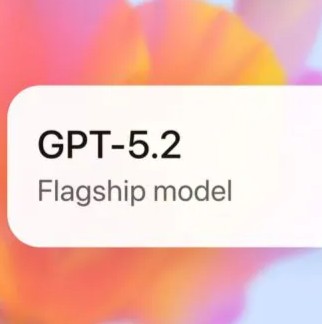AI's Transformative Impact on Research Across the Globe
As we step further into an era defined by rapid technological advancements, the integration of Artificial Intelligence (AI) has proven to be a game-changer across multiple sectors, particularly in research. Globally, AI is streamlining research processes, accelerating data analysis, and automating routine tasks. According to Gartner, by 2024, AI-driven solutions are expected to generate $3.7 trillion in business value and save a staggering 8.1 billion hours of productivity. These figures highlight AI's profound impact on improving research outcomes and productivity worldwide.
From facilitating complex data analysis to simplifying peer review processes, AI is revolutionizing the research landscape by enhancing both accuracy and efficiency. AI-powered research assistants are now becoming indispensable in tasks such as literature review, citation tracking, and data interpretation, allowing researchers to focus more on innovation and less on administrative burdens.
India's Commitment to AI-Driven Research: A Growing Powerhouse
India's potential to become a leader in AI-driven research is unparalleled, thanks to its thriving tech industry, government support, and a vast pool of talented researchers. Government initiatives such as AIRAWAT (AI Research, Analytics and Knowledge Assimilation Platform) and the National AI Strategy showcase India's commitment to fostering an environment conducive to AI advancements. These initiatives aim to create a robust AI ecosystem that can support both academic and industrial research, placing India on the global AI map.
With AI transforming research productivity, Indian researchers are rapidly adopting AI tools to stay competitive on a global scale. According to Accenture, 72% of productivity gains in research and development (R&D) settings can be attributed to AI tools. These technologies are proving invaluable in helping researchers accelerate their understanding of new topics, refine scholarly writing, and discover relevant studies. Currently, 22% of Indian researchers use AI tools, and this figure is expected to rise as more professionals become familiar with the technology.
The Role of AI Assistants in the Indian Research Landscape
AI research assistants have emerged as powerful allies for Indian researchers, optimizing research workflows and enhancing productivity. These tools streamline labor-intensive tasks such as data analysis and citation management, enabling researchers to focus on core research areas. According to an Accenture report, AI assistants are responsible for over 70% of productivity gains in research environments. By automating time-consuming tasks, AI allows researchers to delve deeper into their work, facilitating groundbreaking discoveries across various disciplines.
Additionally, AI tools offer broad utility in identifying key research trends, supporting peer reviews, refining academic writing, and even providing insights into interdisciplinary studies. The increasing reliance on AI tools in India highlights the country's drive towards embracing cutting-edge technology to maintain its competitive edge in the global research arena.
The Government's Role in AI Research Advancement
The Indian government plays a pivotal role in advancing AI research through various programs designed to boost productivity and foster innovation. Initiatives like India AI and the National AI Strategy provide a strong foundation for integrating AI into research processes, ensuring that researchers have access to the latest tools and technologies.
According to Elsevier’s Insights 2024 report, 67% of Indian researchers not currently using AI tools anticipate adopting them in the next 2-5 years. This optimism reflects the positive outlook for AI integration in research and the growing recognition of its potential to revolutionize the research landscape.
Ethical Challenges in AI Adoption
Despite the numerous benefits AI offers to the research community, its integration is not without challenges. Trust issues, concerns over ethical usage, and the potential for misinformation are significant barriers to widespread AI adoption. According to a report, 94% of Indian researchers expressed concern over AI's potential misuse, particularly in spreading misinformation or reinforcing biases. There are also fears that an over-reliance on AI could diminish critical thinking skills and lead to unintentional errors.
To address these challenges, trust and transparency are key. A study by Elsevier revealed that 71% of researchers expect AI tools to rely on high-quality, trusted sources to mitigate the risks of misinformation. Building a culture of responsible AI usage—one that prioritizes transparency, fairness, and accountability—will be crucial in overcoming these hurdles.
The Future of AI in Indian Research: Embracing Responsible AI Usage
India's drive to become a global leader in AI-driven research is clear. However, achieving this goal will require overcoming ethical challenges and building trust within the research community. Fostering a responsible AI culture, where ethical considerations such as fairness, privacy, and human oversight are prioritized, will ensure that AI continues to enhance research without compromising on integrity.
India's ability to navigate these challenges will be crucial in shaping the future of AI-powered research. By focusing on collaboration, continuous learning, and dynamic policy development, the country can leverage AI to create a sustainable, innovative, and highly productive research environment.
Conclusion
The integration of AI into research is transforming the landscape of global innovation, and India is well-positioned to be at the forefront of this transformation. Through government initiatives, a robust AI ecosystem, and an unwavering commitment to ethical AI usage, India is poised to lead the way in creating a future where AI and research work hand-in-hand to drive progress and innovation. The journey forward is filled with challenges, but with the right strategies and a focus on responsible AI practices, India’s research community can achieve remarkable breakthroughs that will shape the future of science and technology.
Source: Hindustan Times / Chat GPT








